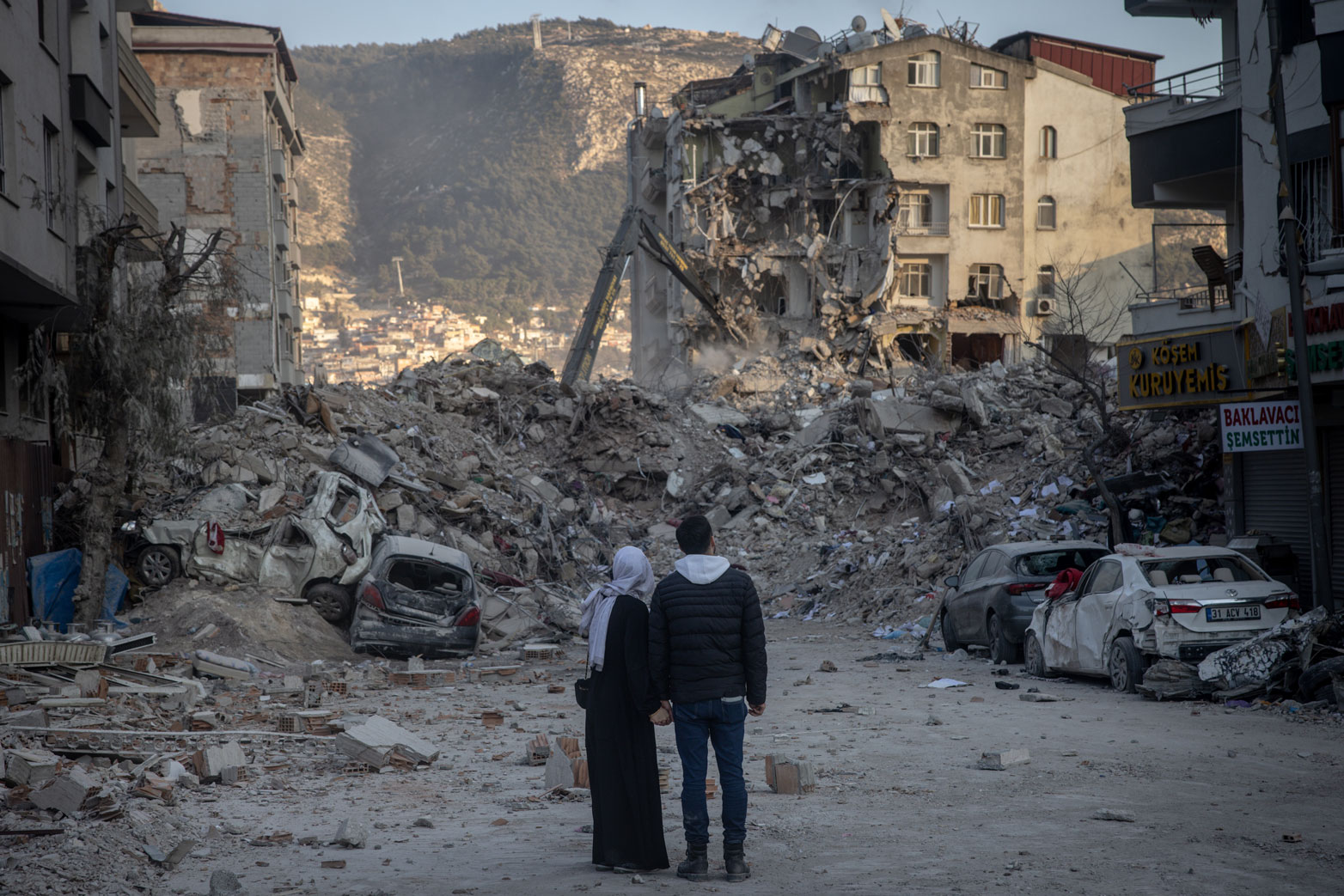Two massive consecutive earthquakes — of 7.8 and 7.5 magnitude, respectively — hit southeastern Turkey, along with neighboring regions in Syria, on Feb. 6, causing one of the deadliest natural disasters in the region in the past hundred years. The death toll has surpassed 47,000.
Soli Ozel — an academic at Kadir Has University in Istanbul and a frequent commentator of Turkish politics — joined Riada Asimovic Akyol on the Wider Angle podcast to explain the sorrow, anguish and anger within a grieving nation.
Ozel described why citizens in most quake-stricken provinces said that state assistance did not arrive in a timely manner and how large volunteer campaigns and civilian endeavors have continued despite the miserable collective morale in Turkey. Given the high level of political polarization in the country, Ozel emphasized “first immense empathy, support, solidarity and perhaps much more importantly the ability of the society to actually organize and mobilize and come to the aid of those in need at the moment when they needed it.”
But there remains much concern, sadness, shock and anger in the country, Ozel adds, “because things should have been and could have been handled much better.” The earthquakes also reignited preexisting fears about the situation in Istanbul and the state of preparation for the massive, long-awaited earthquake that, according to seismologists, will hit the city by 2030.
Listen to the conversation to understand the wider angle of accumulated traumas and multitude of future challenges in Turkey, which marks its centennial as a modern nation this coming October. Ozel shares his thoughts about the importance of nourishing memory and remembrance for the sake of reckoning and healing pain from the present and the past. It is available wherever you listen to your podcasts and on YouTube here.
Wider Angle is produced and hosted by Riada Asimovic Akyol.
Sign up to our mailing list to receive our stories in your inbox.


